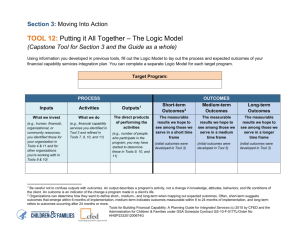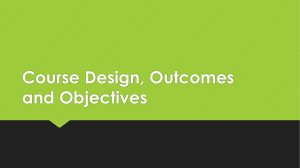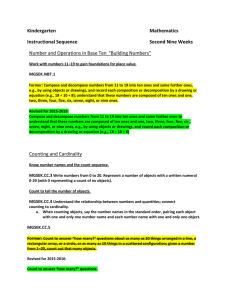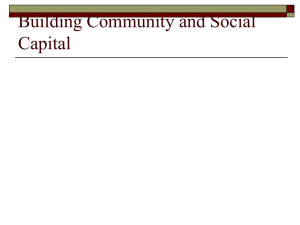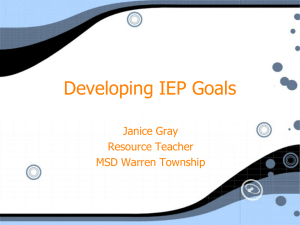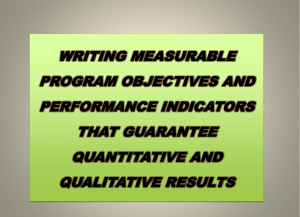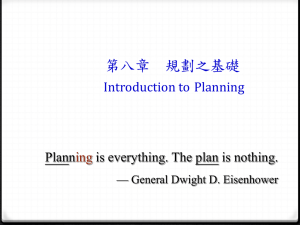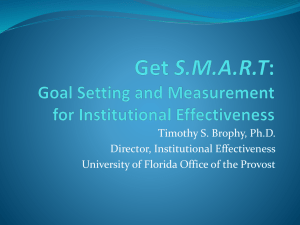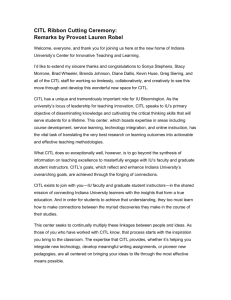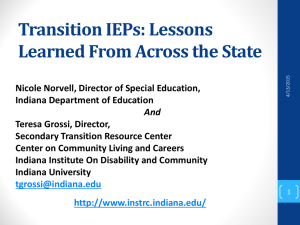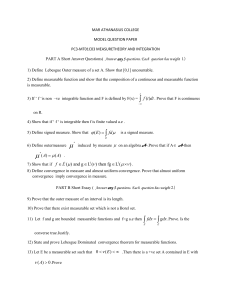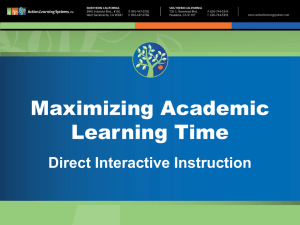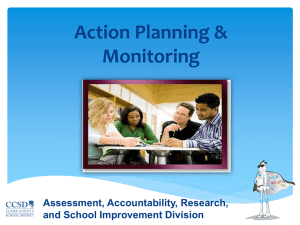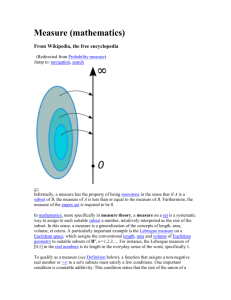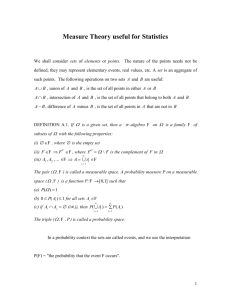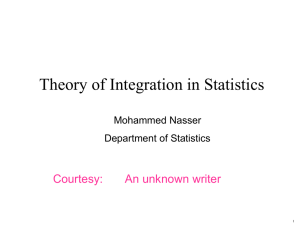Knowing What They Know: Learning Outcomes and the Evidence of
advertisement
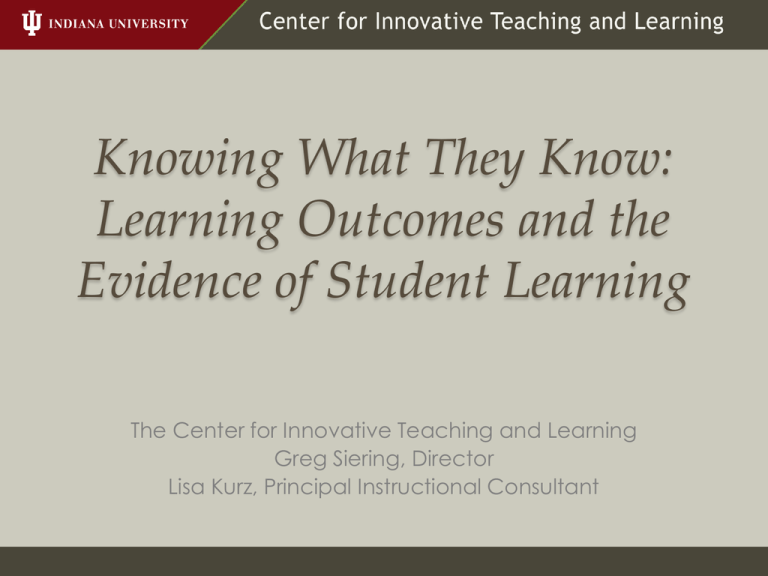
Knowing What They Know: Learning Outcomes and the Evidence of Student Learning The Center for Innovative Teaching and Learning Greg Siering, Director Lisa Kurz, Principal Instructional Consultant Learning Outcomes: are user-friendly statements that tell students what they will be able to do at the end of a period of time. They are measurable and quite often observable. Learning outcomes: • state in clear terms what it is that your students should be able to do at the end of a course that they could not do at the beginning. • focus on student products, artifacts, or performances, rather than on instructional techniques or course content. • are student-centered rather than instructor-centered. Learning Outcomes: • maximize student achievement. • help to structure the course design/development process. • explicitly communicate course expectations to your students. • ensure the alignment of course lectures, class activities, and the evidence of student learning. • provide a framework for monitoring students’ progress throughout the semester. By the end of this course, students should be able to . . . Know Understand Be exposed to Learn Appreciate Recall Explain Interpret Compare Differentiate Implement Judge Create Using Measurable Language Folklore Hard to Measure: Students will be exposed to the major folklore genres of Indiana. Measurable: By the end of this course, students will be able to analyze an example of Indiana folklore that is unfamiliar to them, using appropriate research and writing techniques. Using Measurable Language Sociology Hard to Measure: I want students to realize and gain knowledge of institutional racist policies that impact minority families. Measurable: Students will be able to recognize and verbally explain U.S. policies that have an impact on minority families. Using Measurable Language SPEA – Public Affairs Hard to Measure: I want students to see how urban problems are important in their own lives. Measurable: Students will be able to invent and defend a solution to an urban problem that is relevant to their own city, town, or campus. Using Measurable Language Business - Finance Hard to Measure: Students will know how to complete a finance-related project efficiently when presented with a set of financial reports from their boss. Measurable: Given a financial dilemma and a sundry assortment of financial documents, students will be able to solve the dilemma and recommend the soundest financial decision to their boss. Alignment of Outcomes, Assessments, and Activities What should they be able to do? (Outcome) How can they demonstrate this? (Assessments) How will you get them there? (Activities) Where to go from here CITL Departmental Support • Faculty workshops on writing course-level learning outcomes • Departmental workshops on writing programmatic learning outcomes and mapping them to courses Both of these include an emphasis on designing activities that measure how well students are reaching these outcomes. The Responsive Teaching and Learning Cycle Align course goals, assessments and learning outcomes Share results of the reflective activity Reflect upon and analyze the results Make visible the learning outcomes and grading criteria Collect evidence of student learning For more assistance Please feel free to contact: The Center for Innovative Teaching and Learning http://citl.indiana.edu citl@indiana.edu 855-9023 This material comes from a CITL teaching resource on learning outcomes, which can be found at: http://citl.indiana.edu/resources/teaching-resources1/learningoutcomes.php
